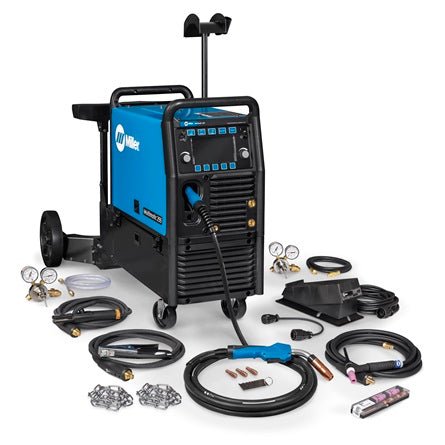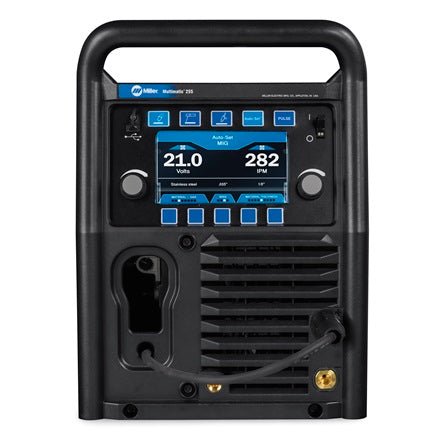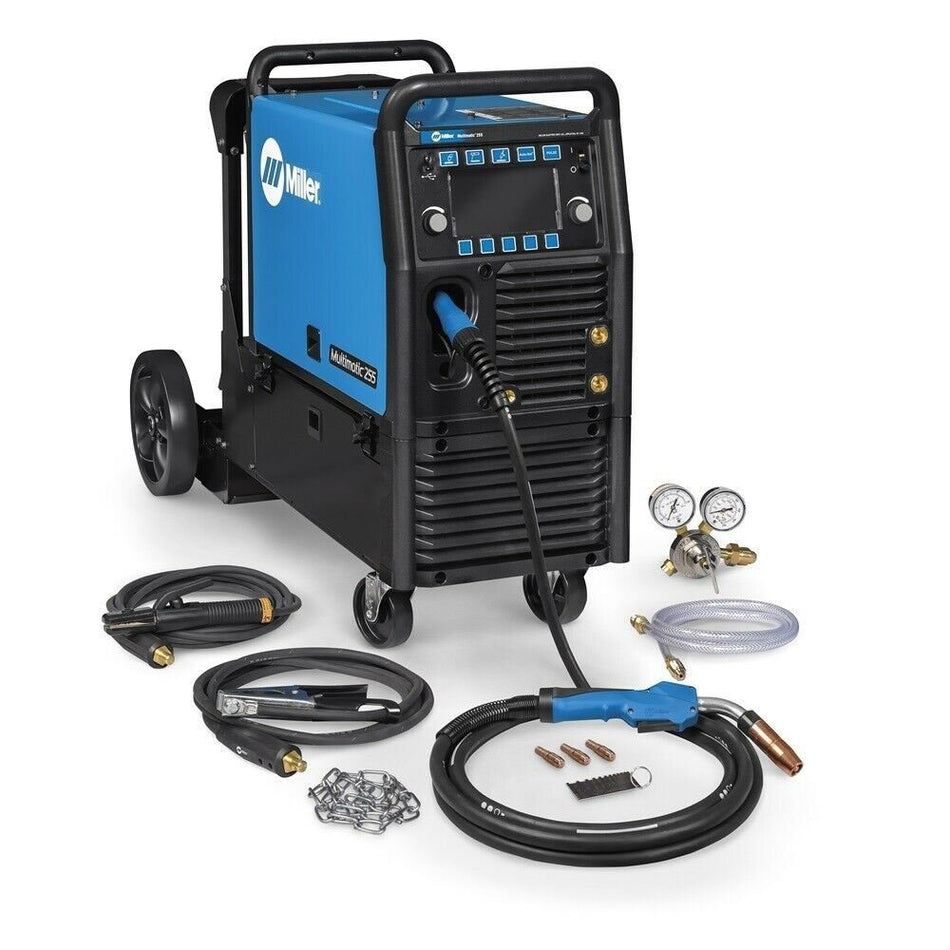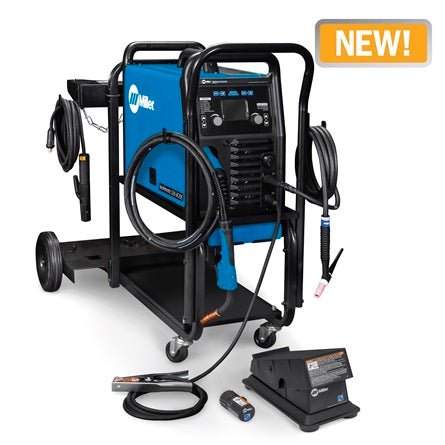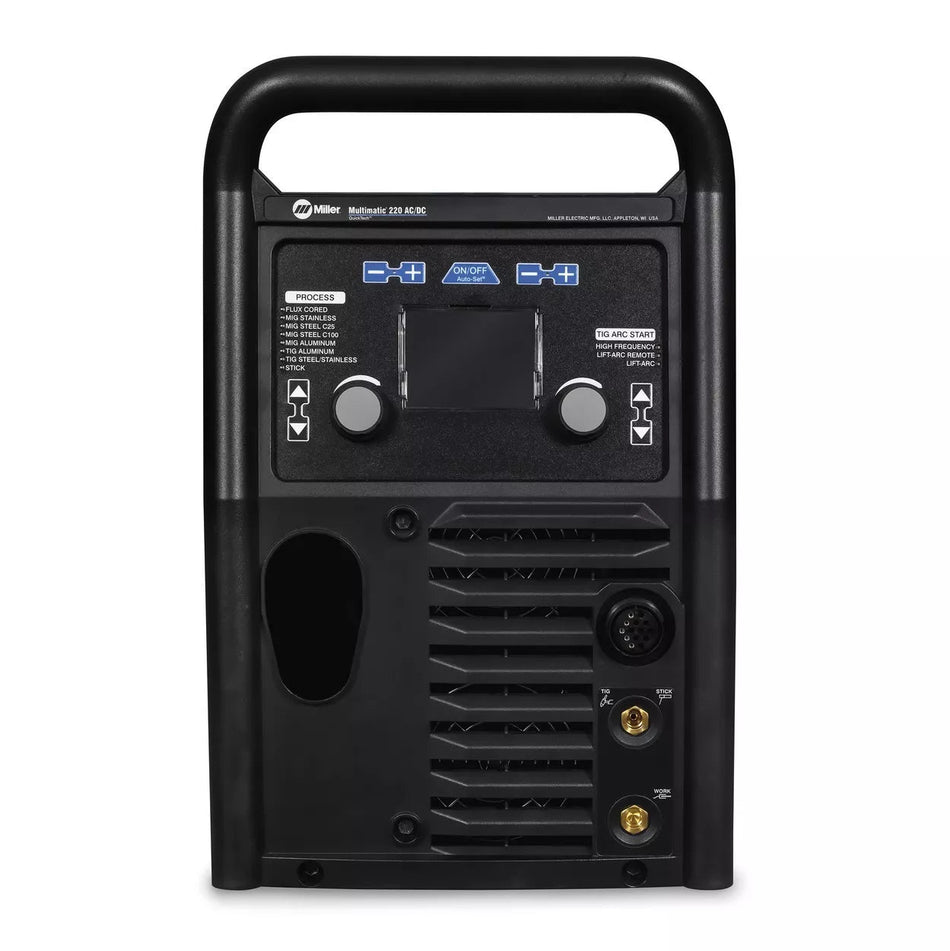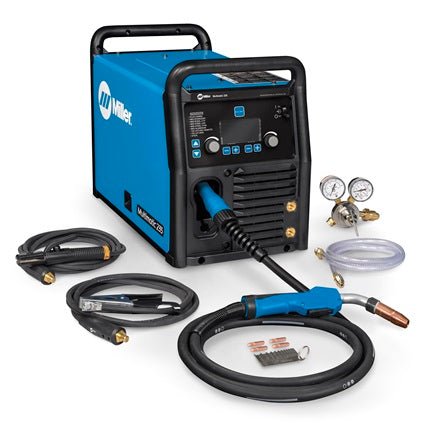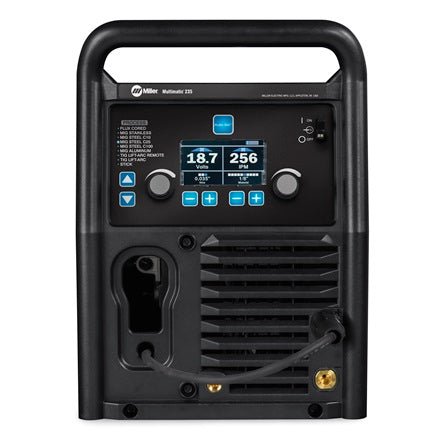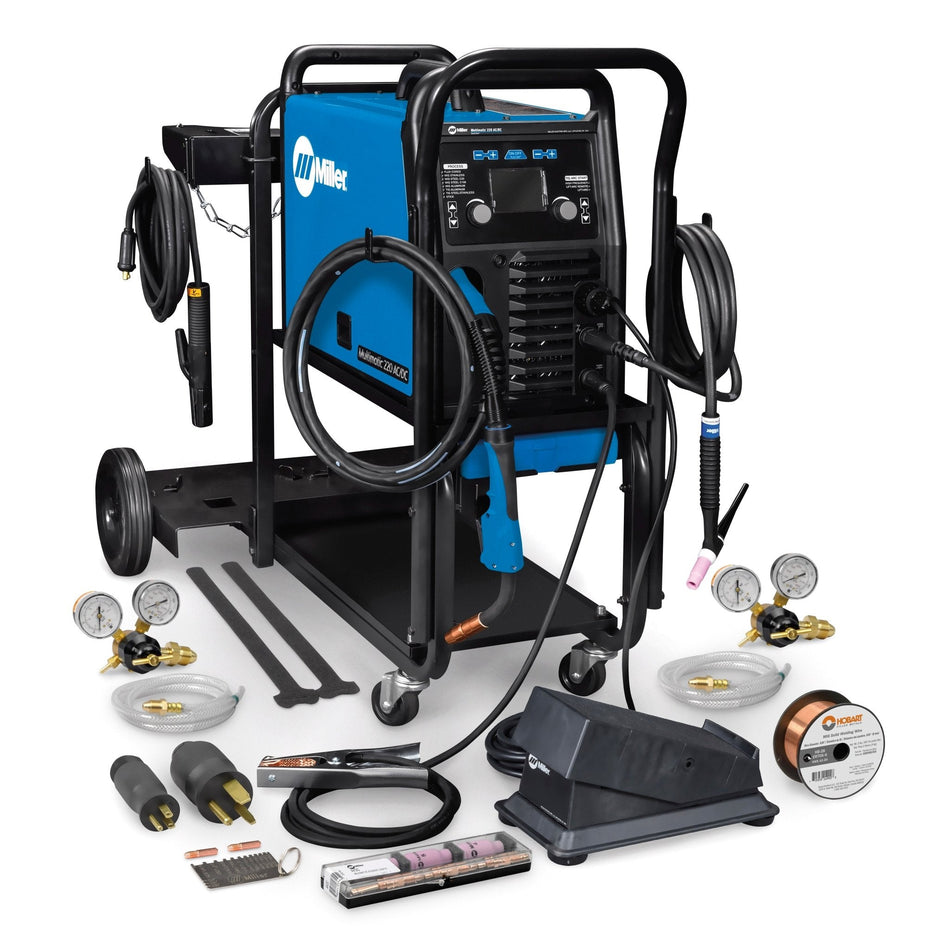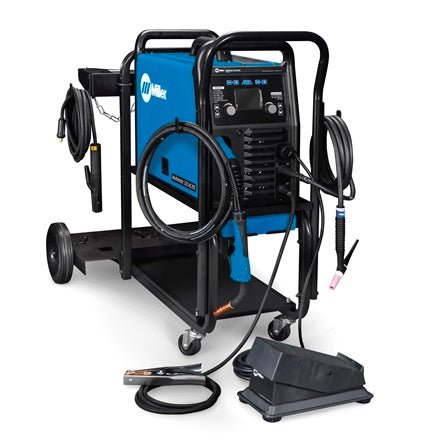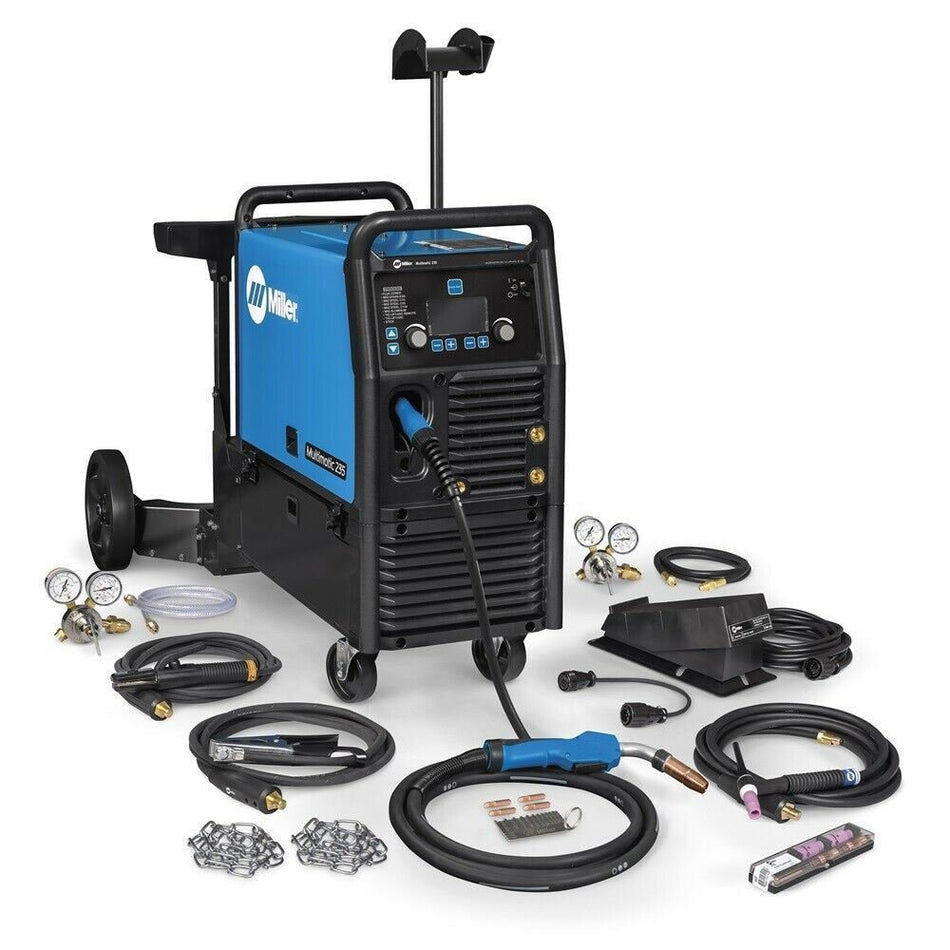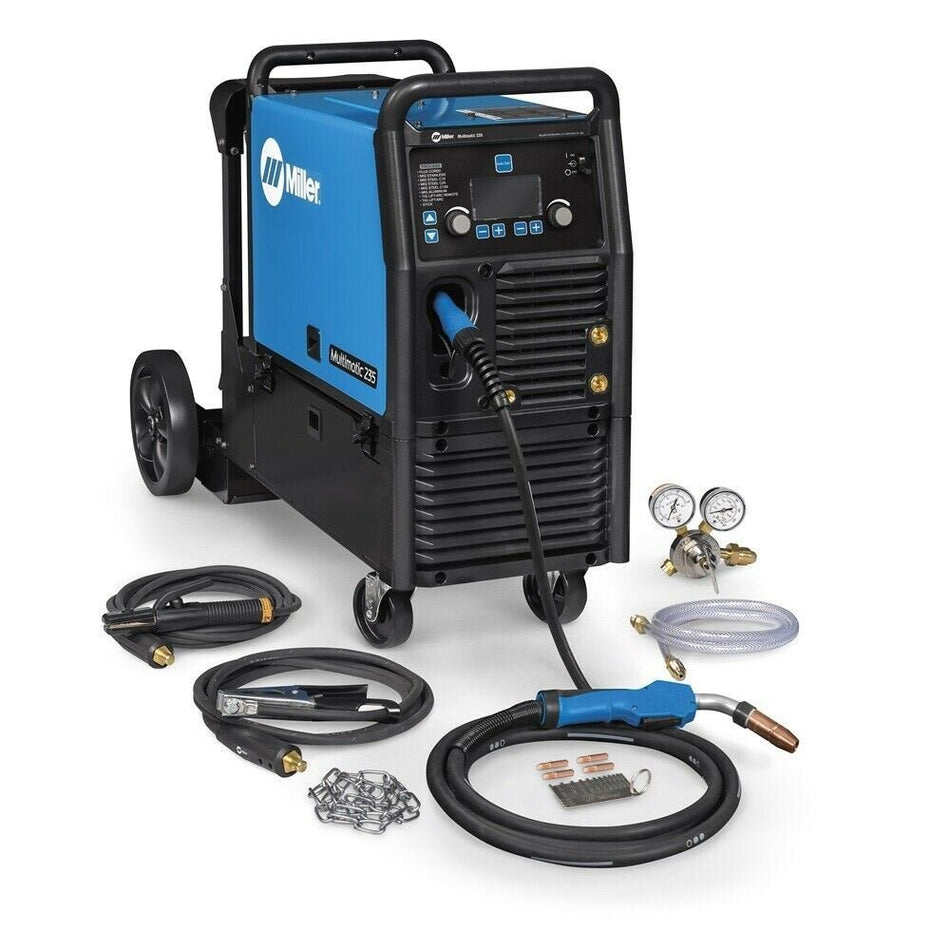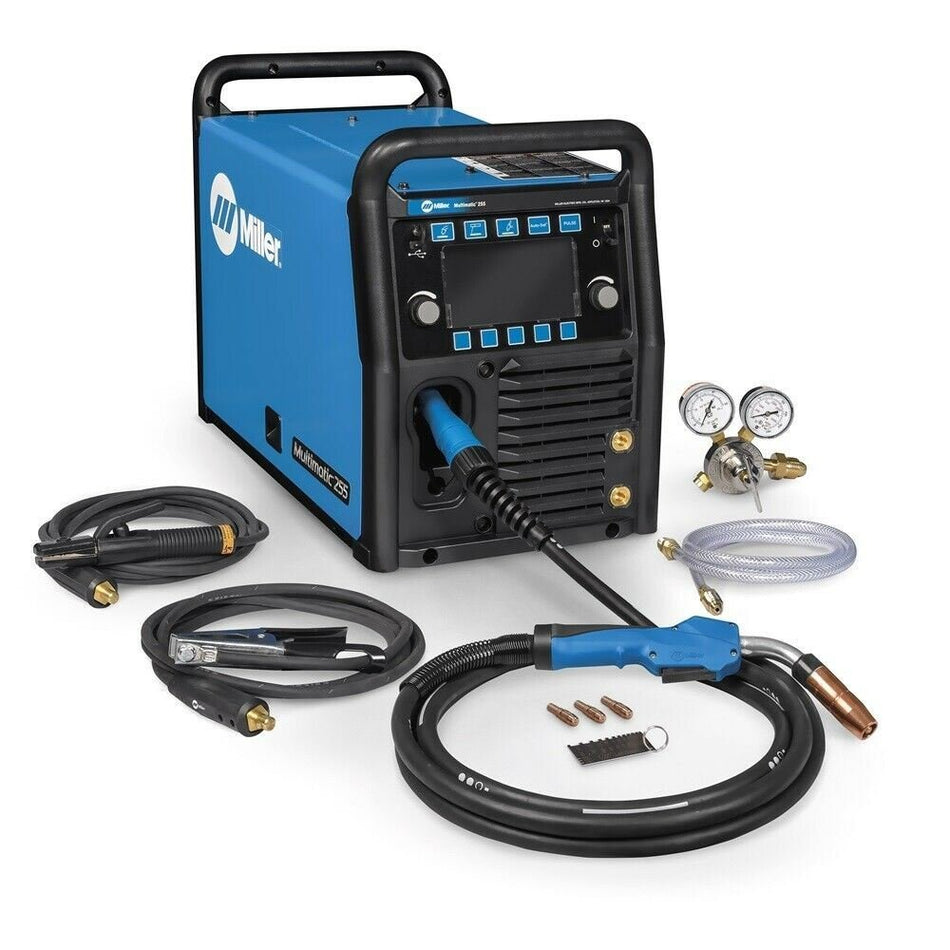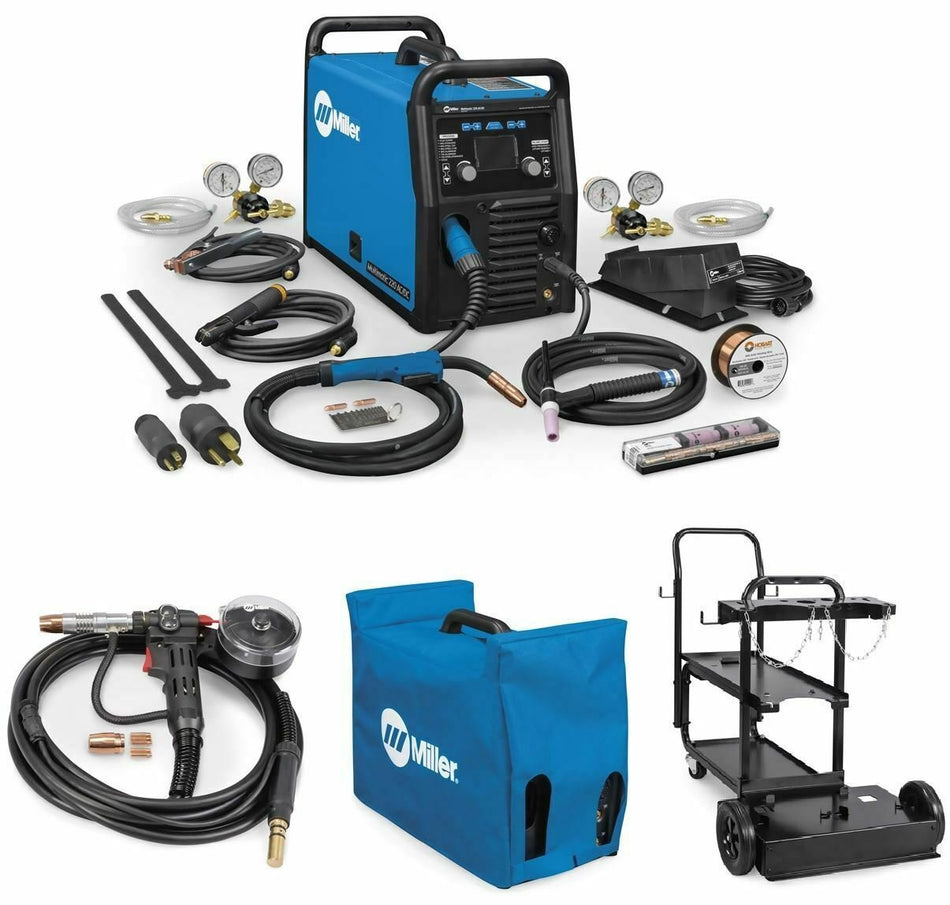16 Products
Multiprocess Welders
Multiprocess welders are versatile machines that allow for various welding processes to be performed using a single unit. This adaptability is particularly beneficial in industrial settings where different welding techniques may be required for different tasks. The most common processes that multiprocess welders can handle include MIG (Metal Inert Gas), TIG (Tungsten Inert Gas), and Stick welding.
One of the primary advantages of multiprocess welders is their ability to switch between different welding methods with relative ease. This feature can enhance productivity, as operators can quickly adapt to the specific requirements of a project without needing to change equipment. For instance, a welder can seamlessly transition from MIG welding, which is ideal for thin materials, to TIG welding, which provides a more precise and cleaner weld for thicker materials.
In terms of performance, multiprocess welders are designed to deliver high-quality welds across various materials, including steel, aluminum, and stainless steel. The versatility of these machines allows for adjustments in voltage and wire feed speed, which can be tailored to suit the specific material and thickness being welded. This level of control is essential for achieving optimal results and ensuring the integrity of the weld.







